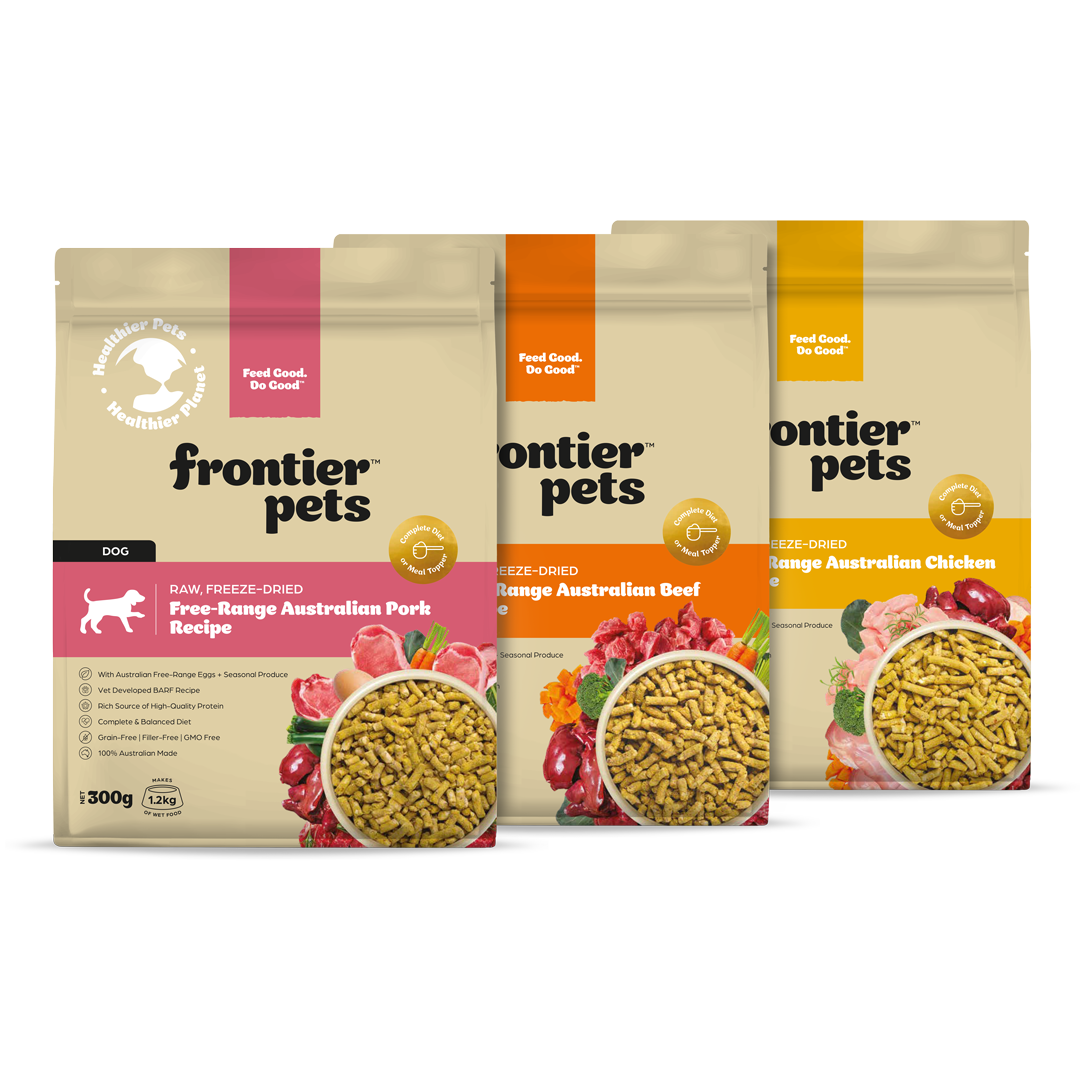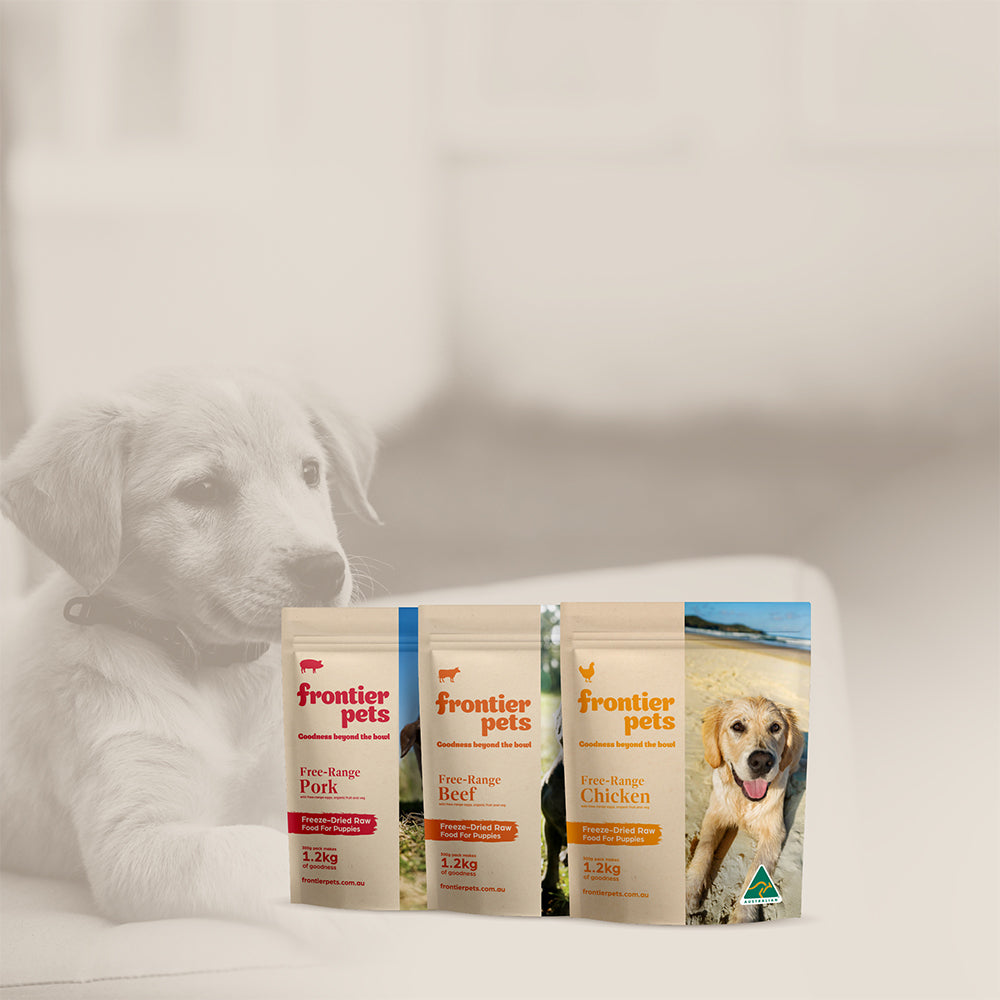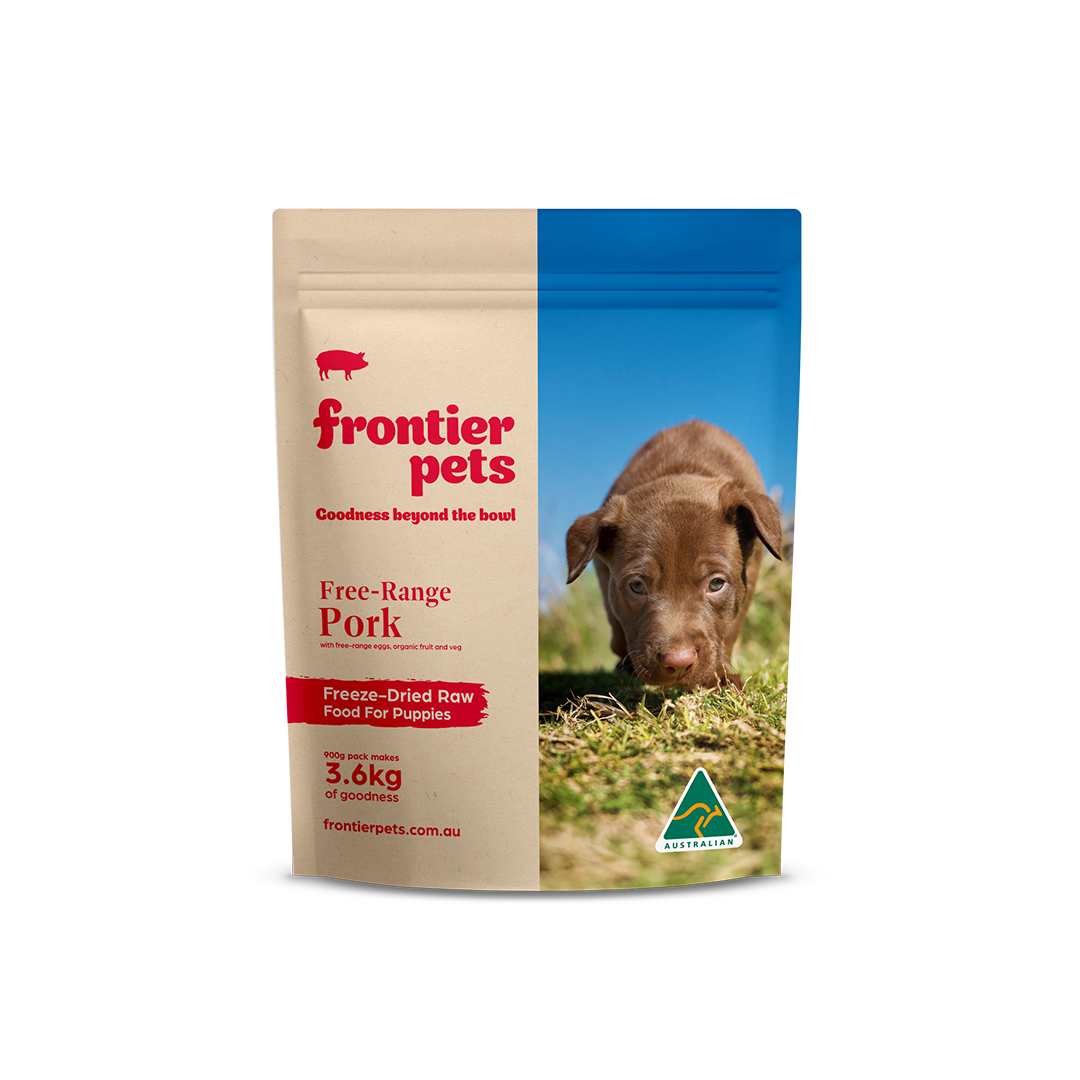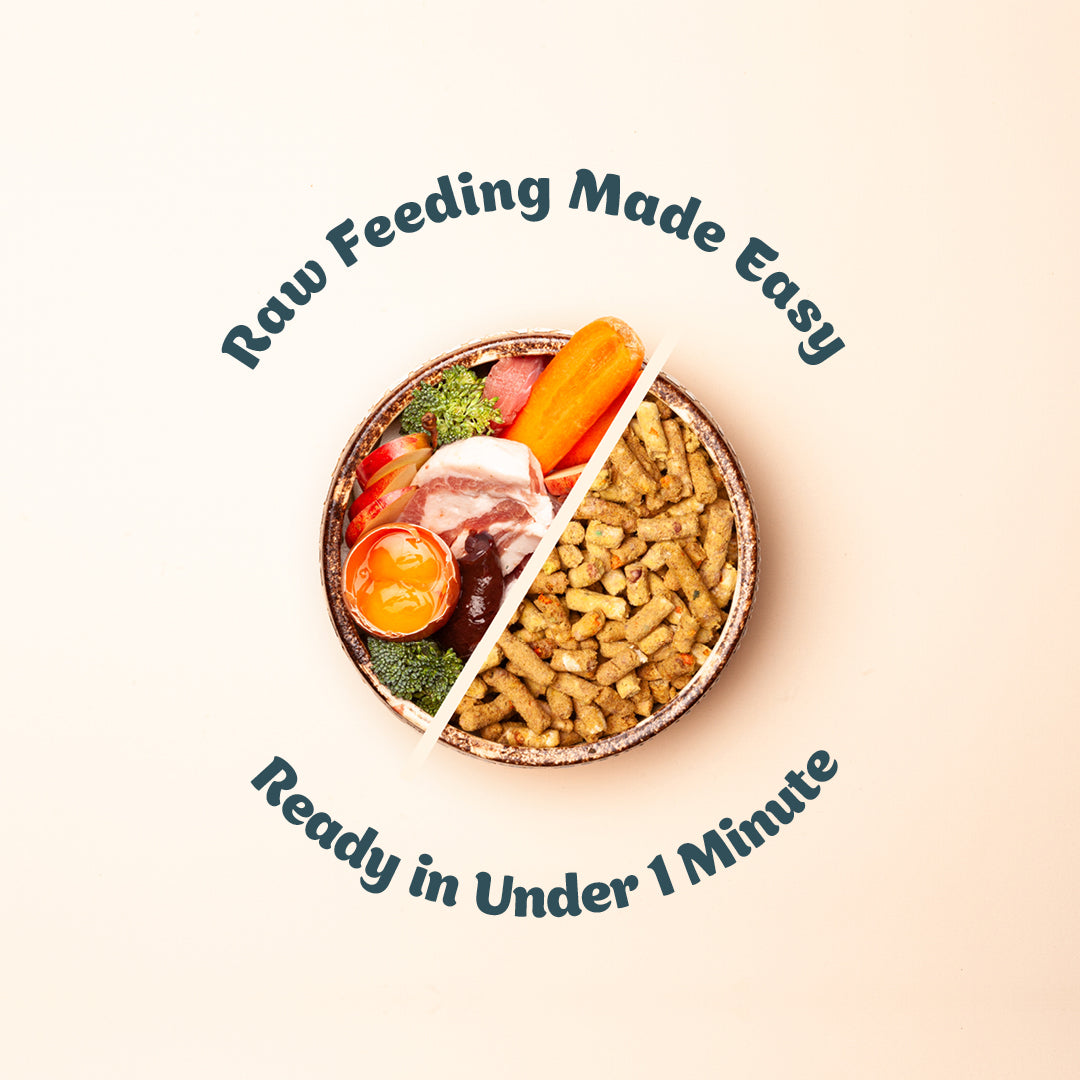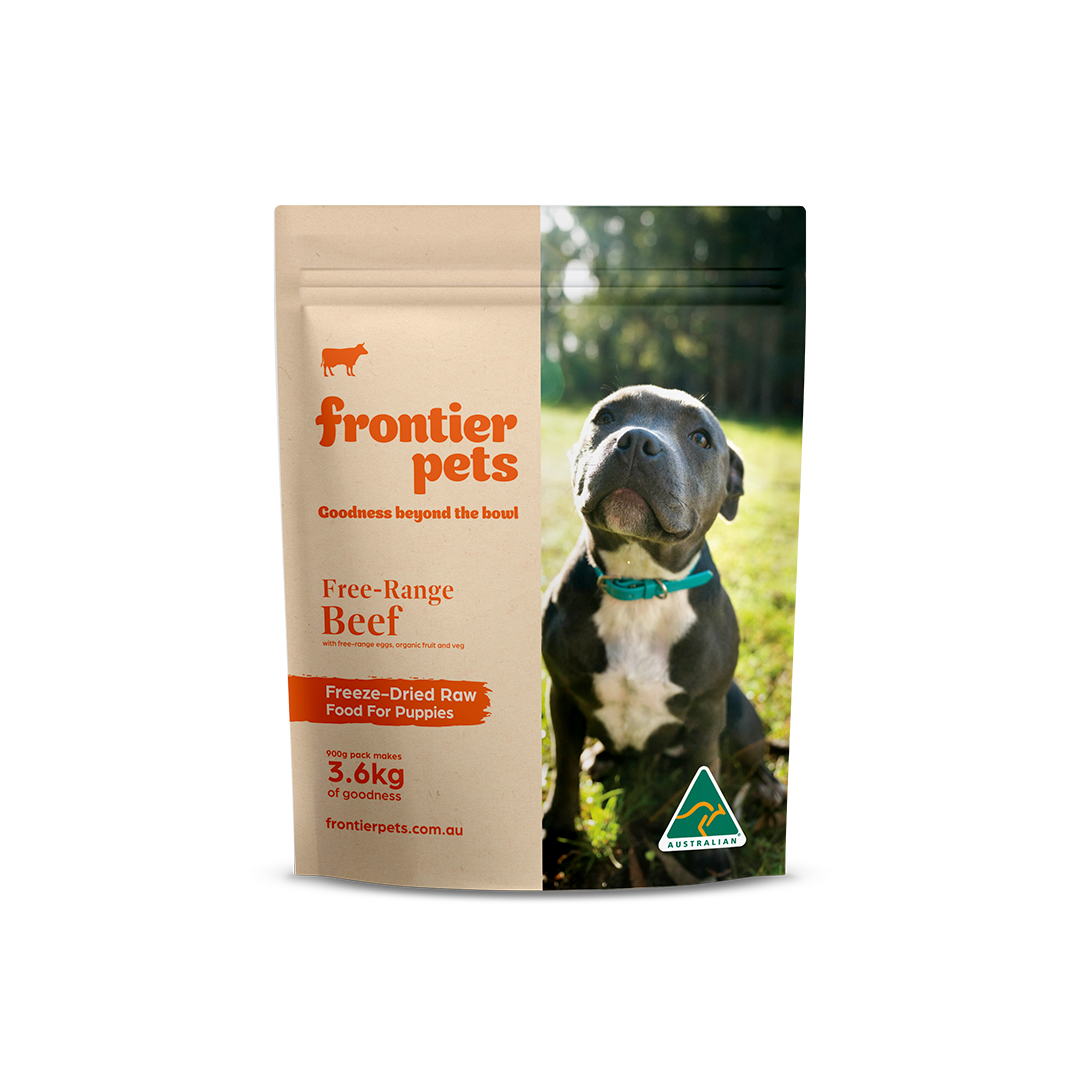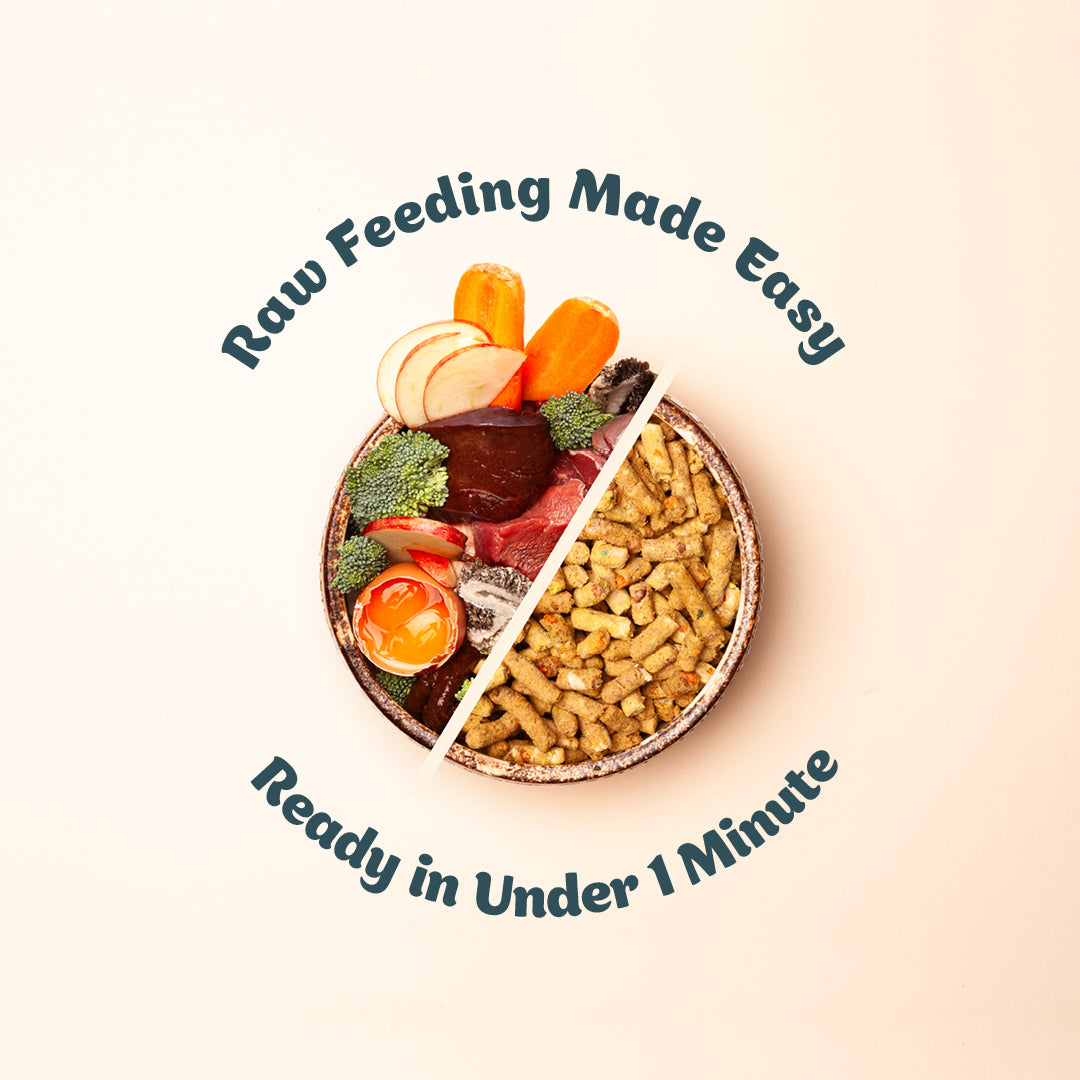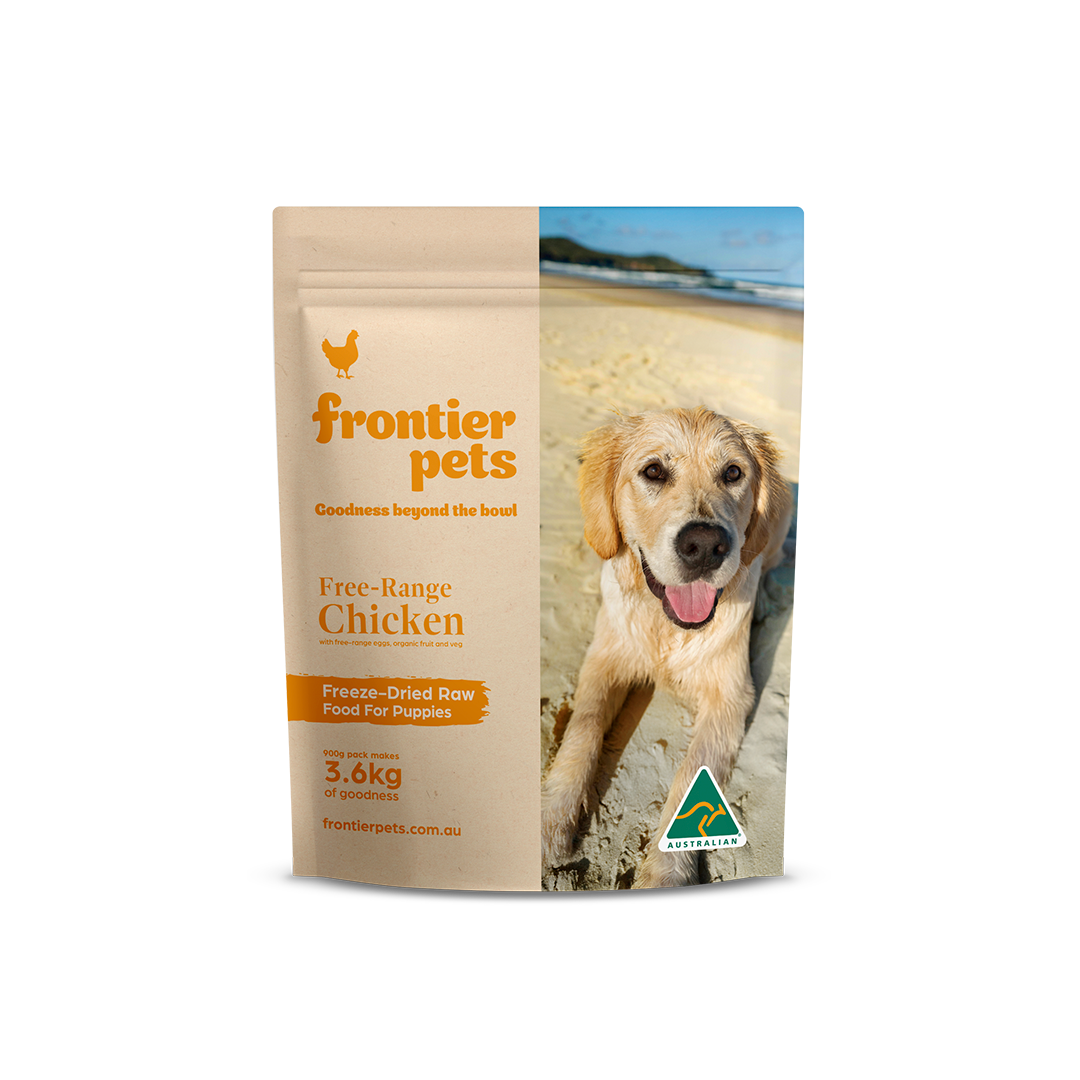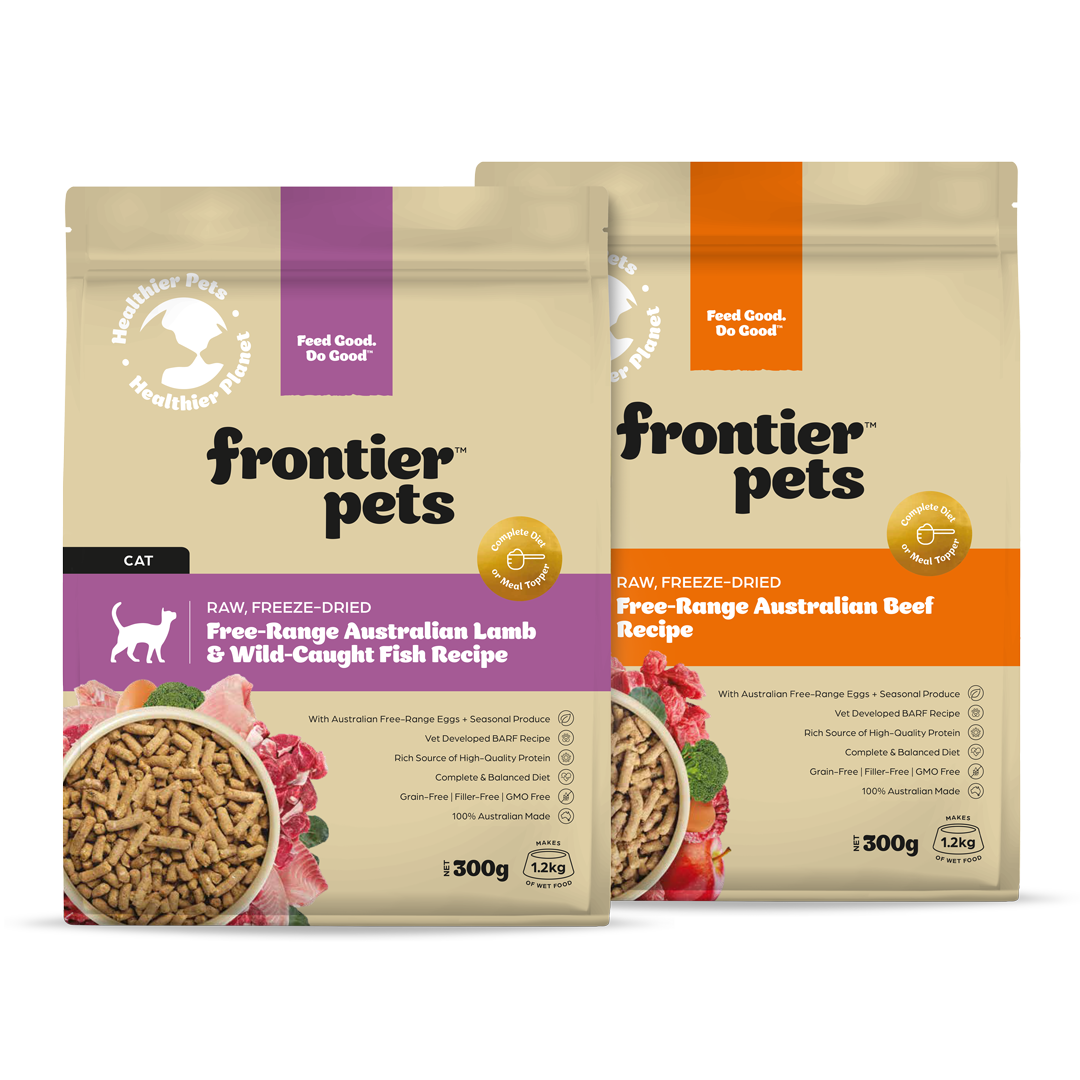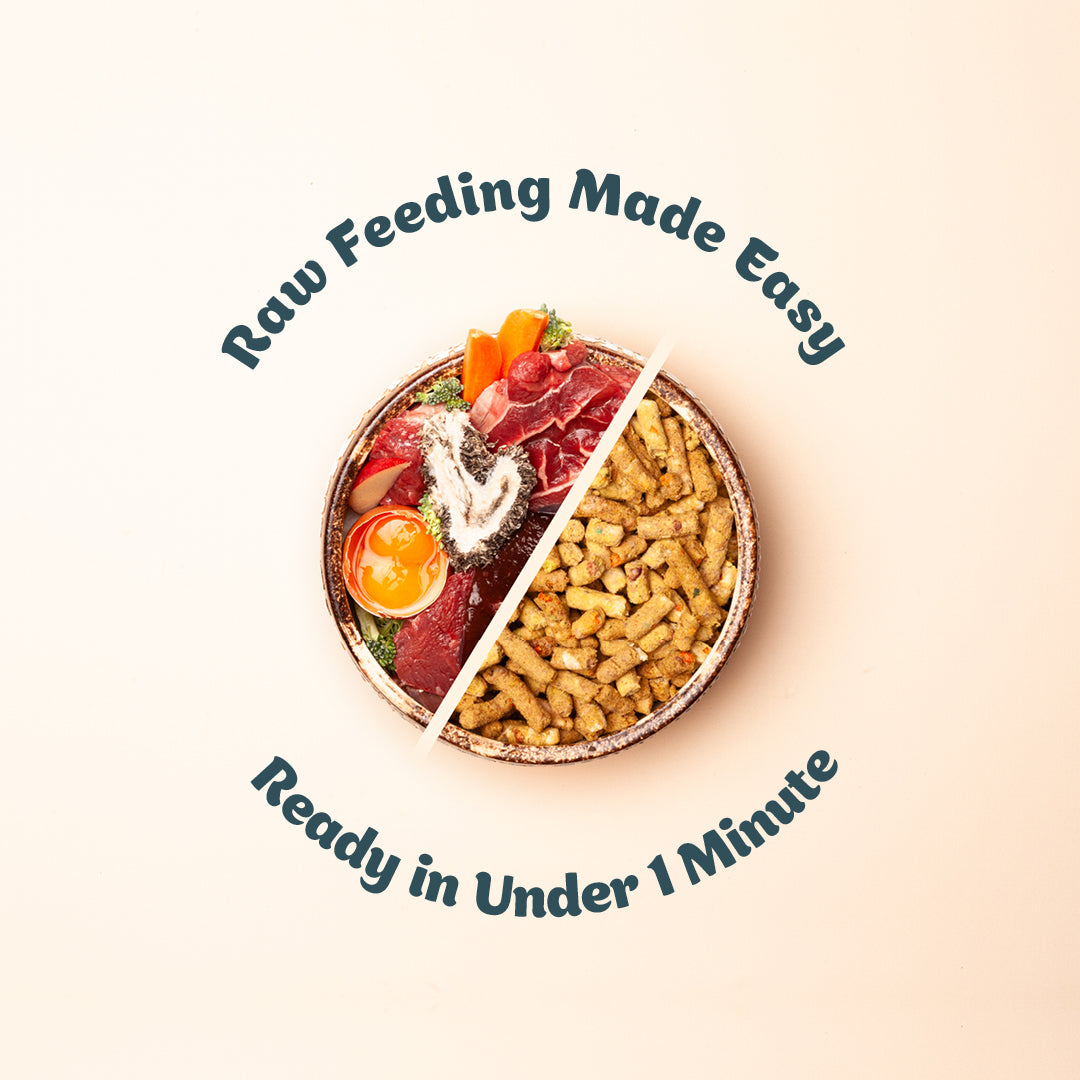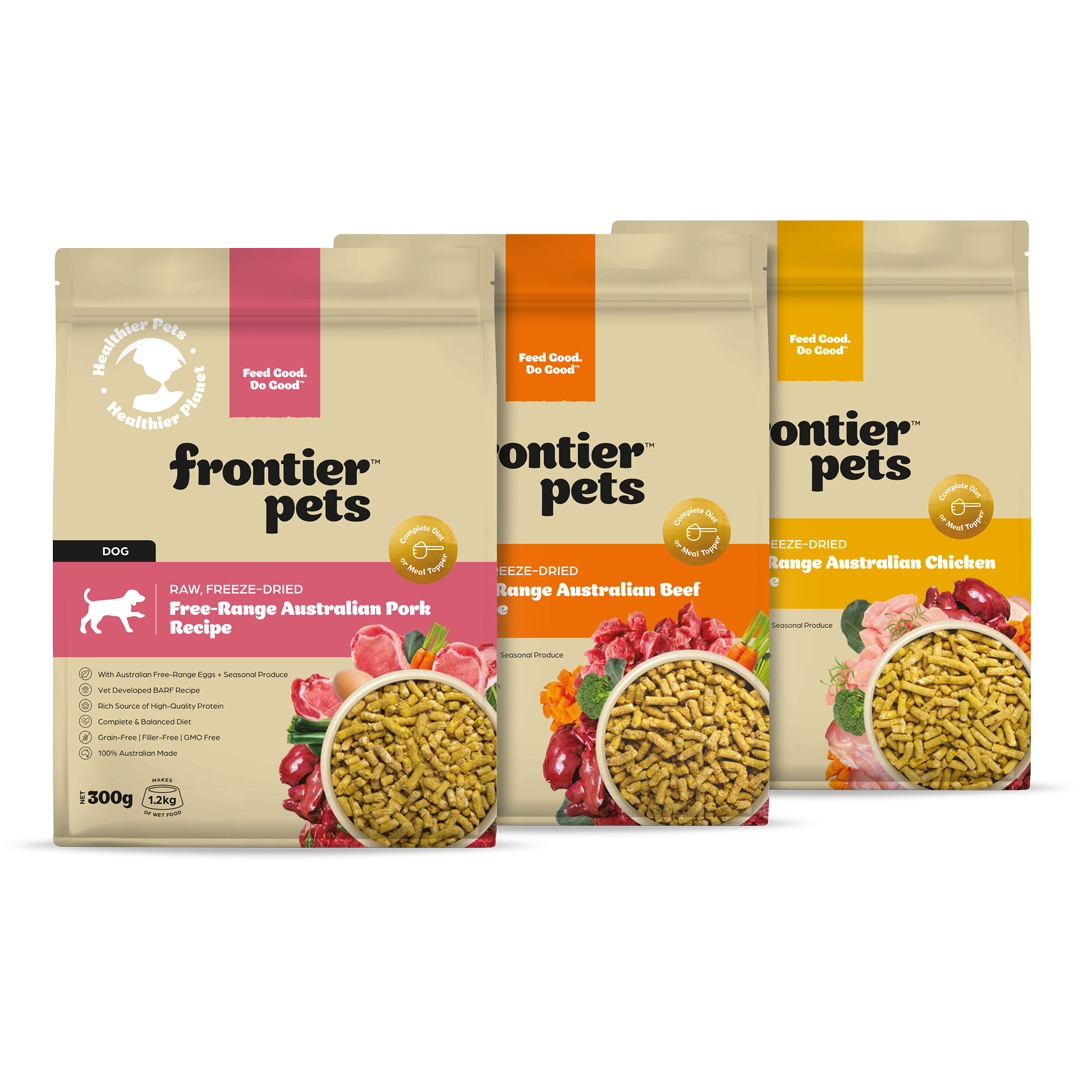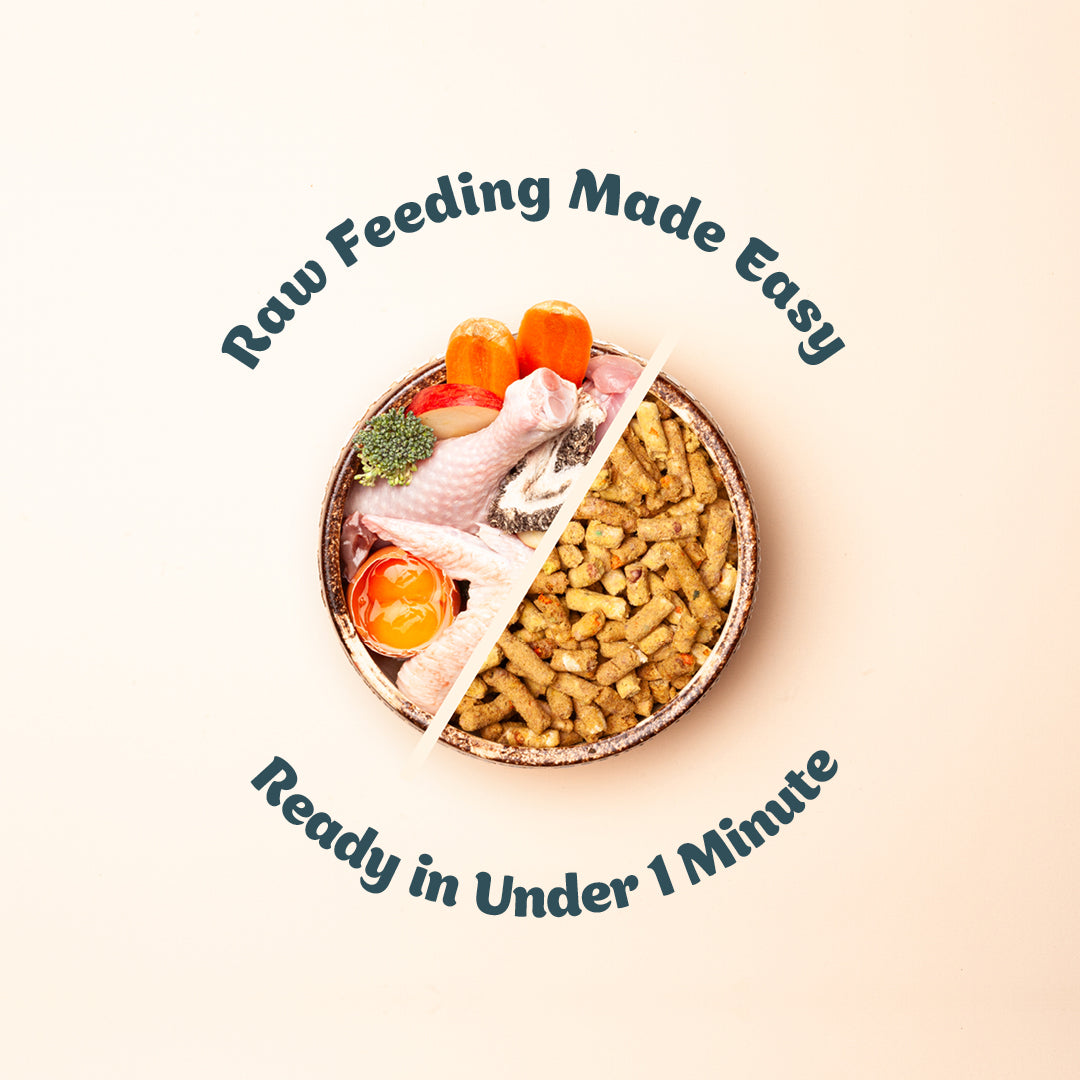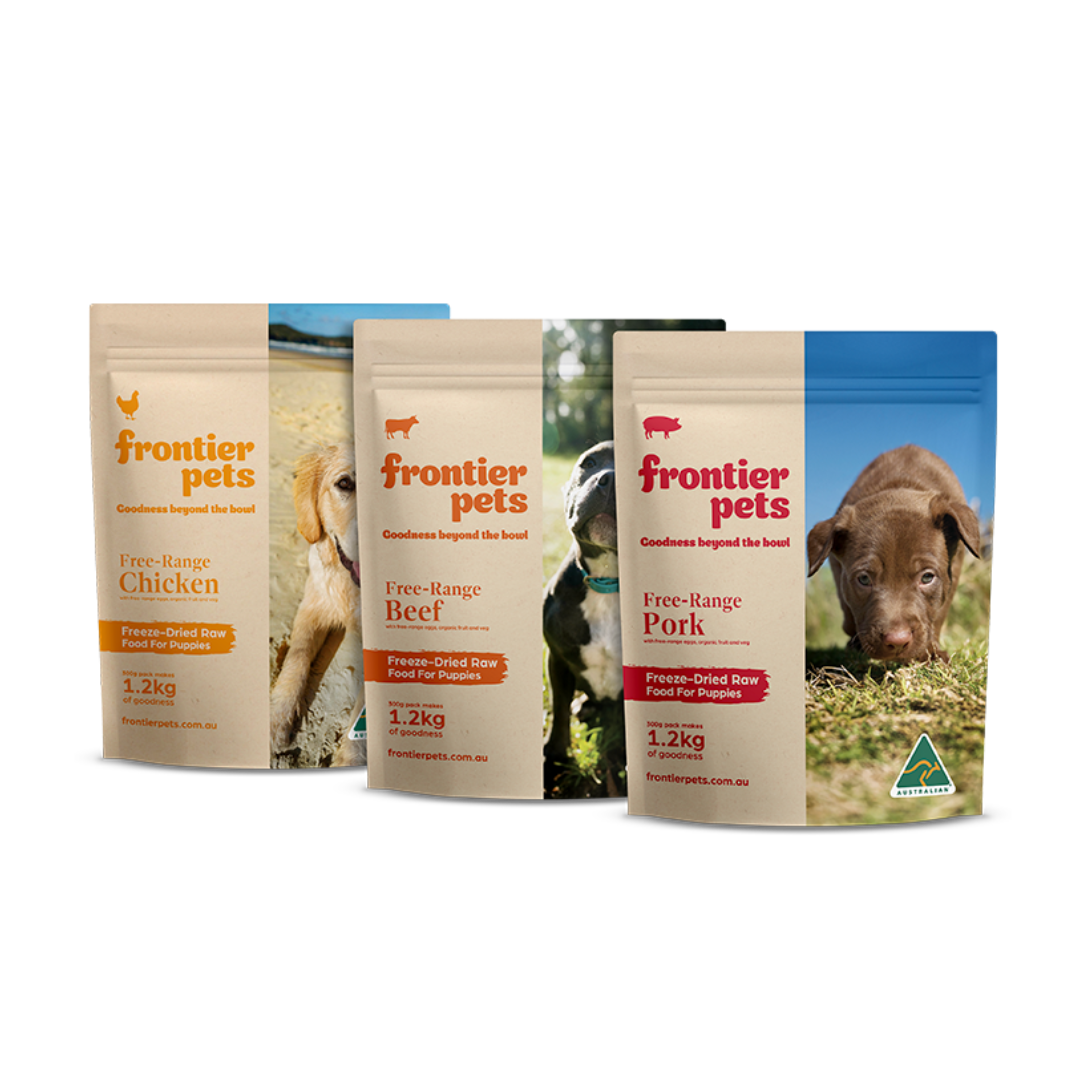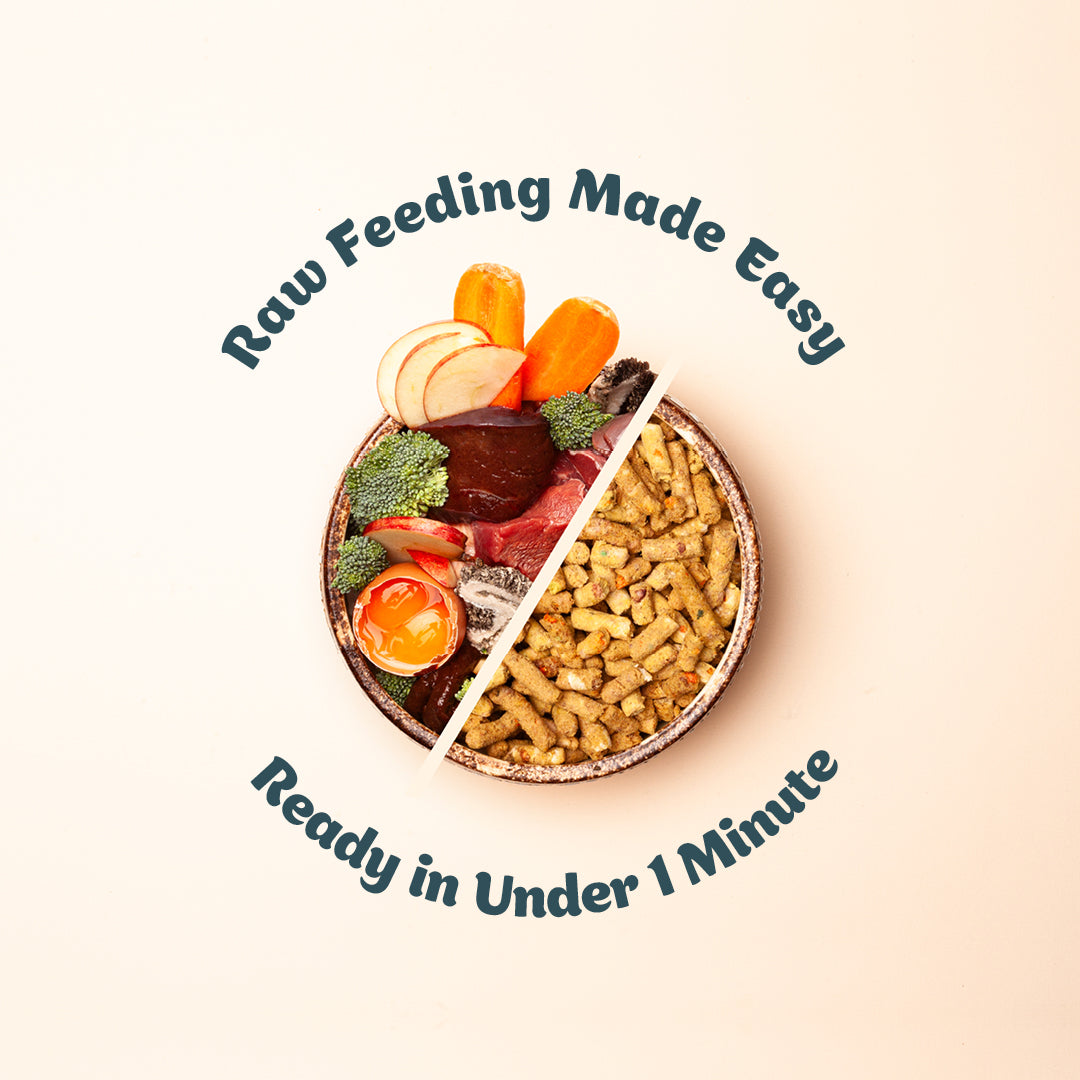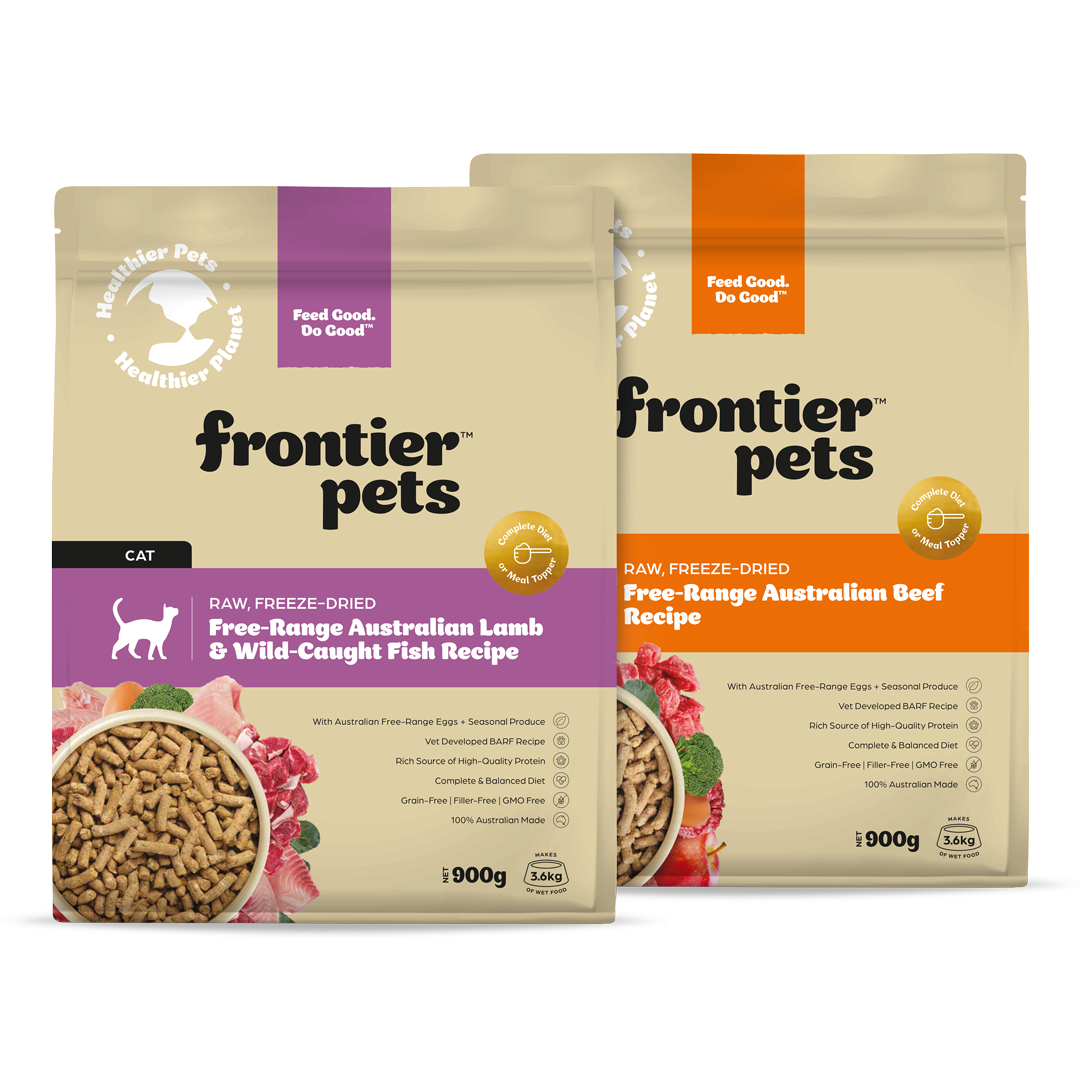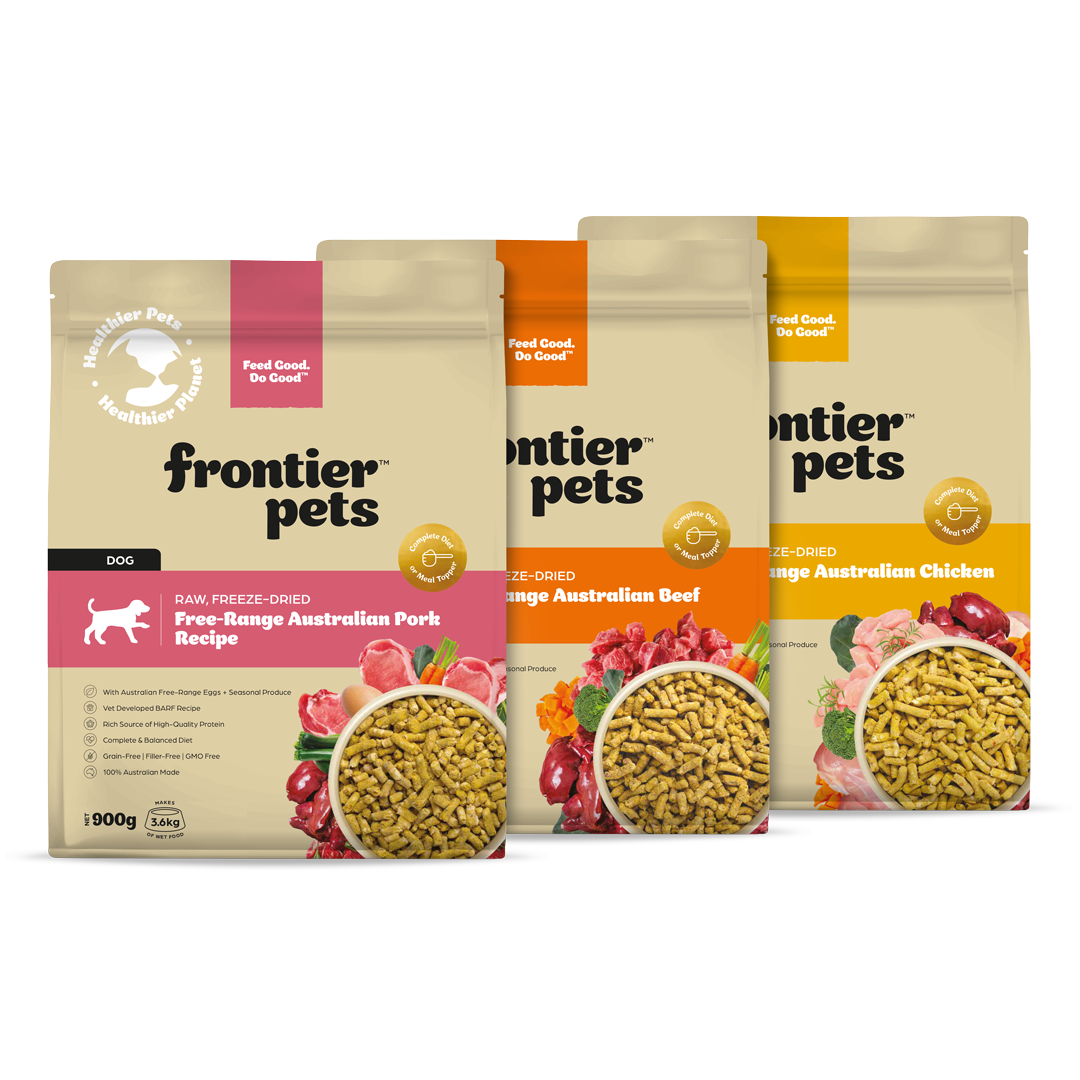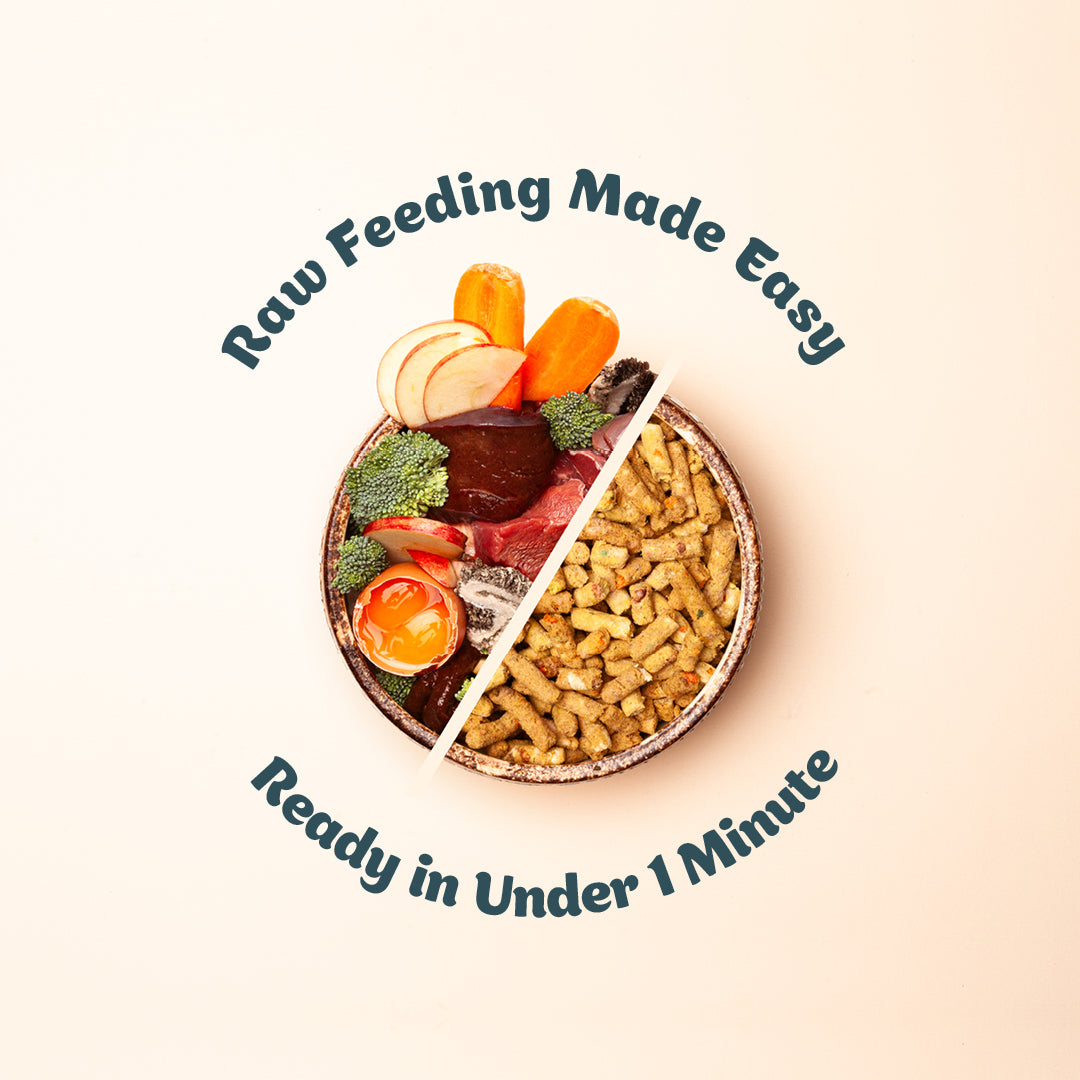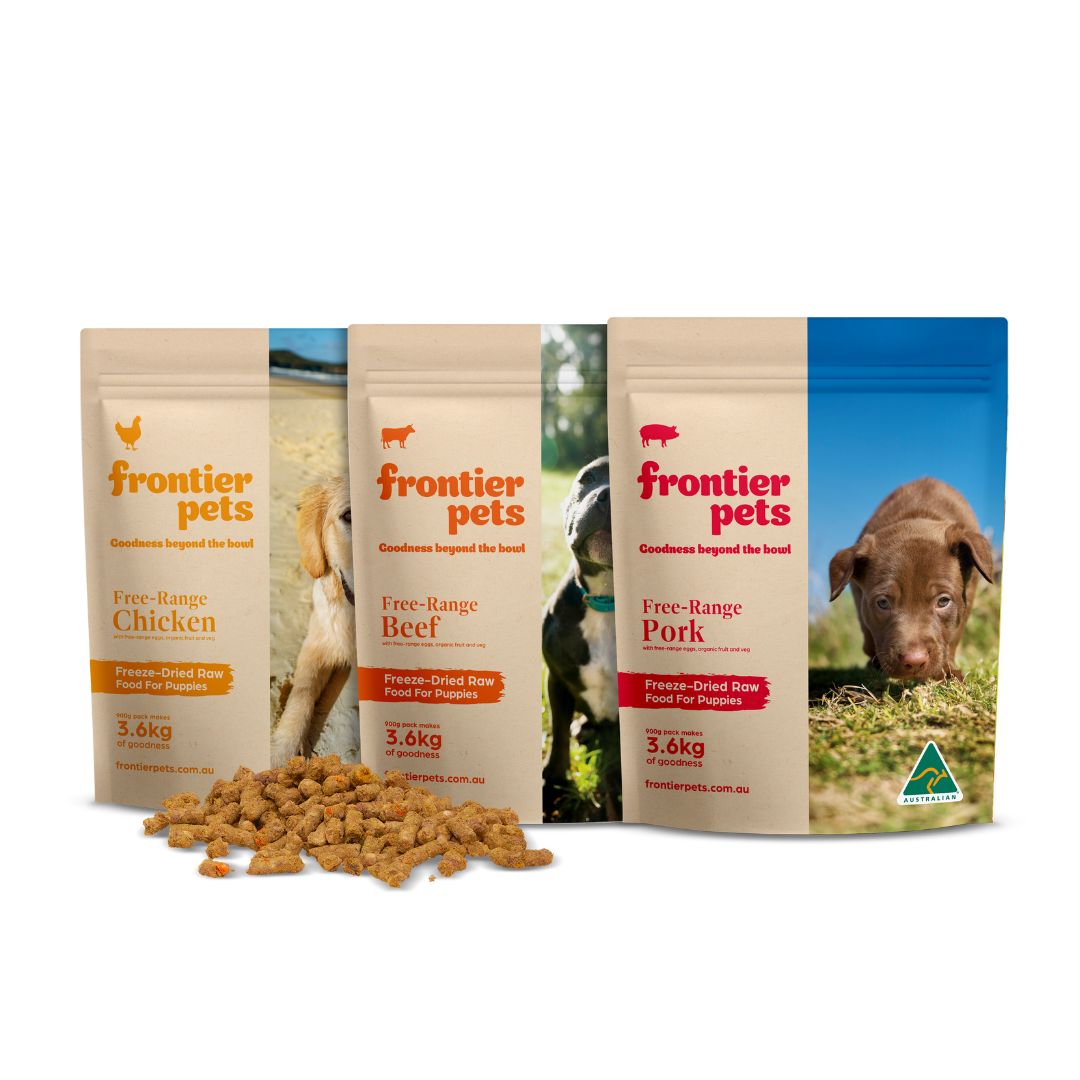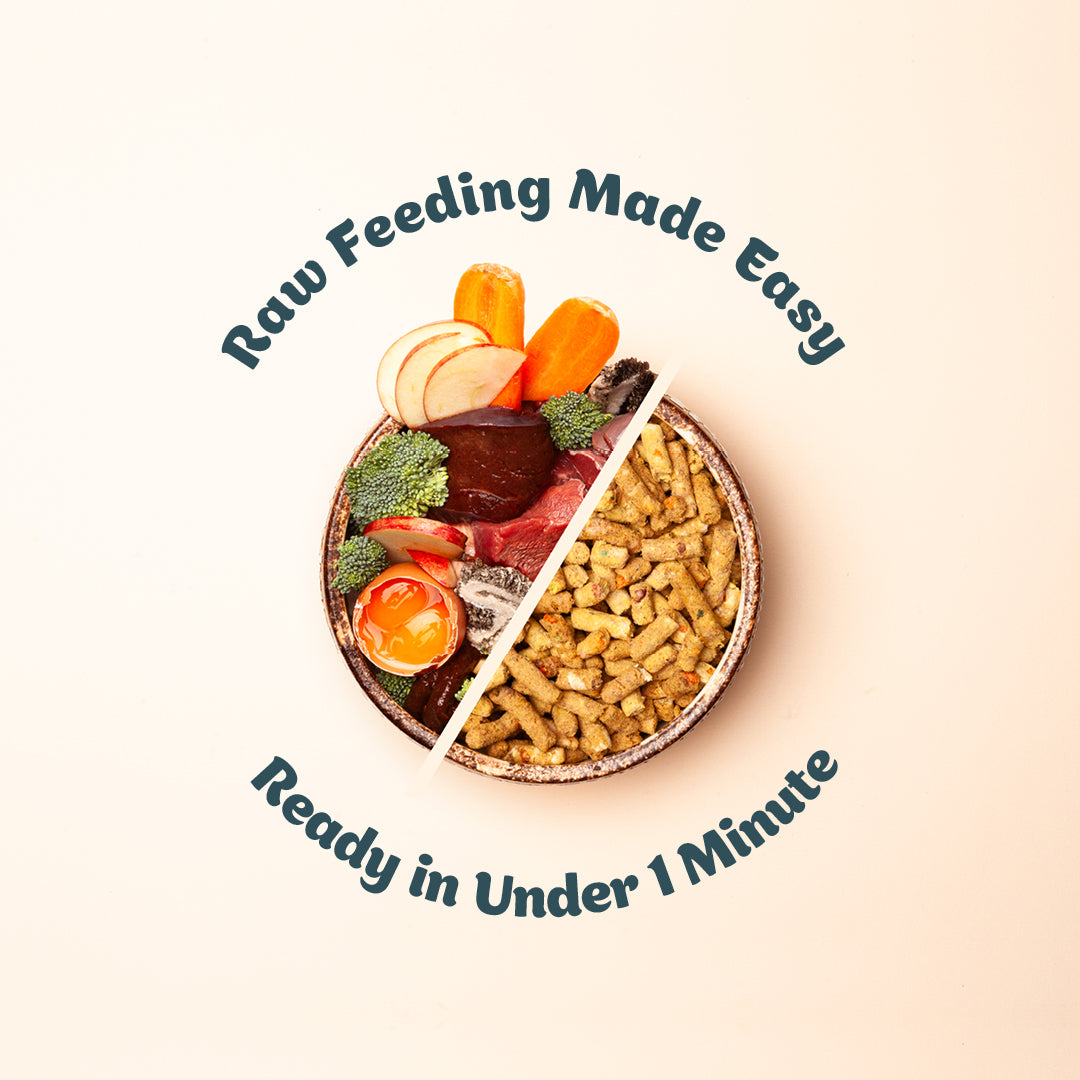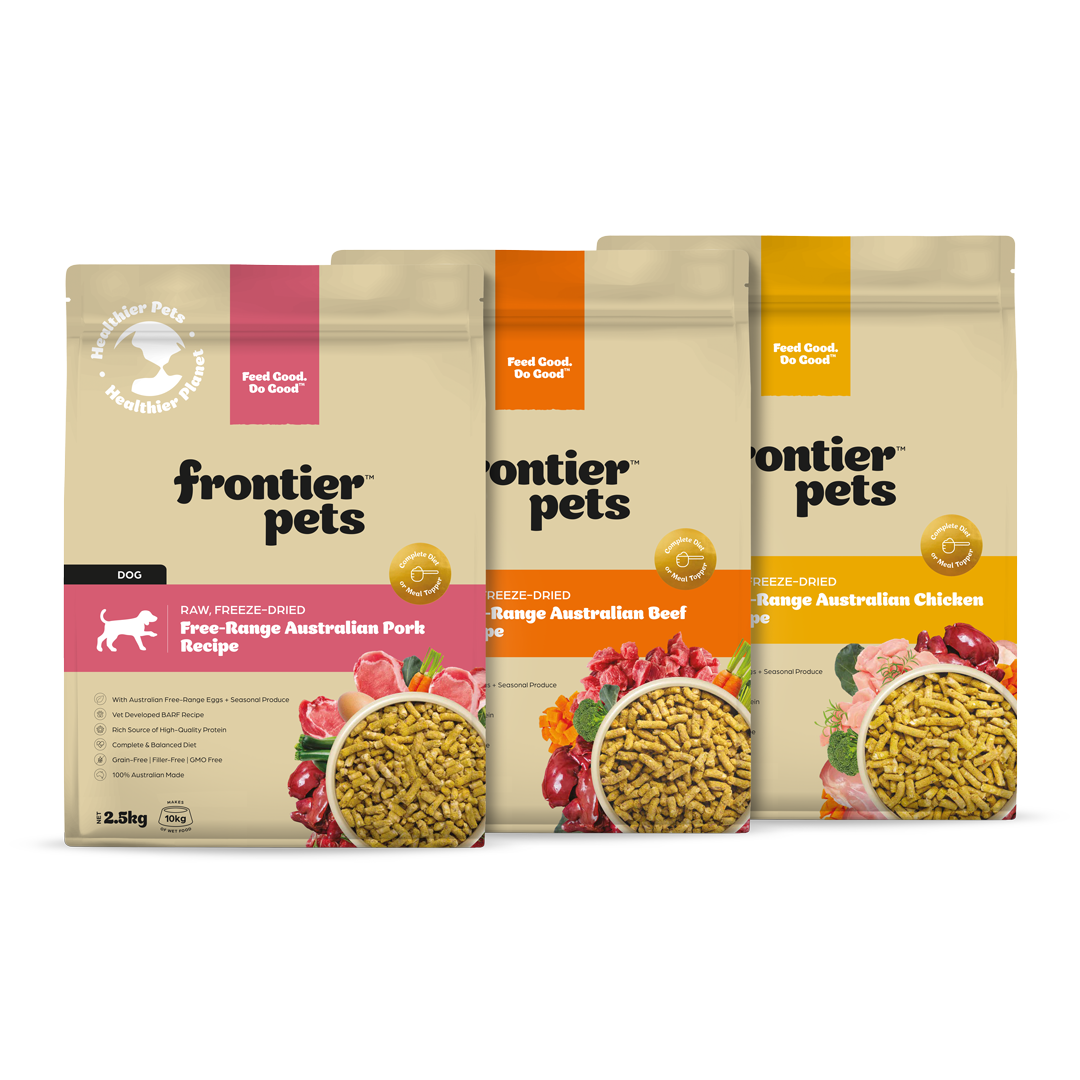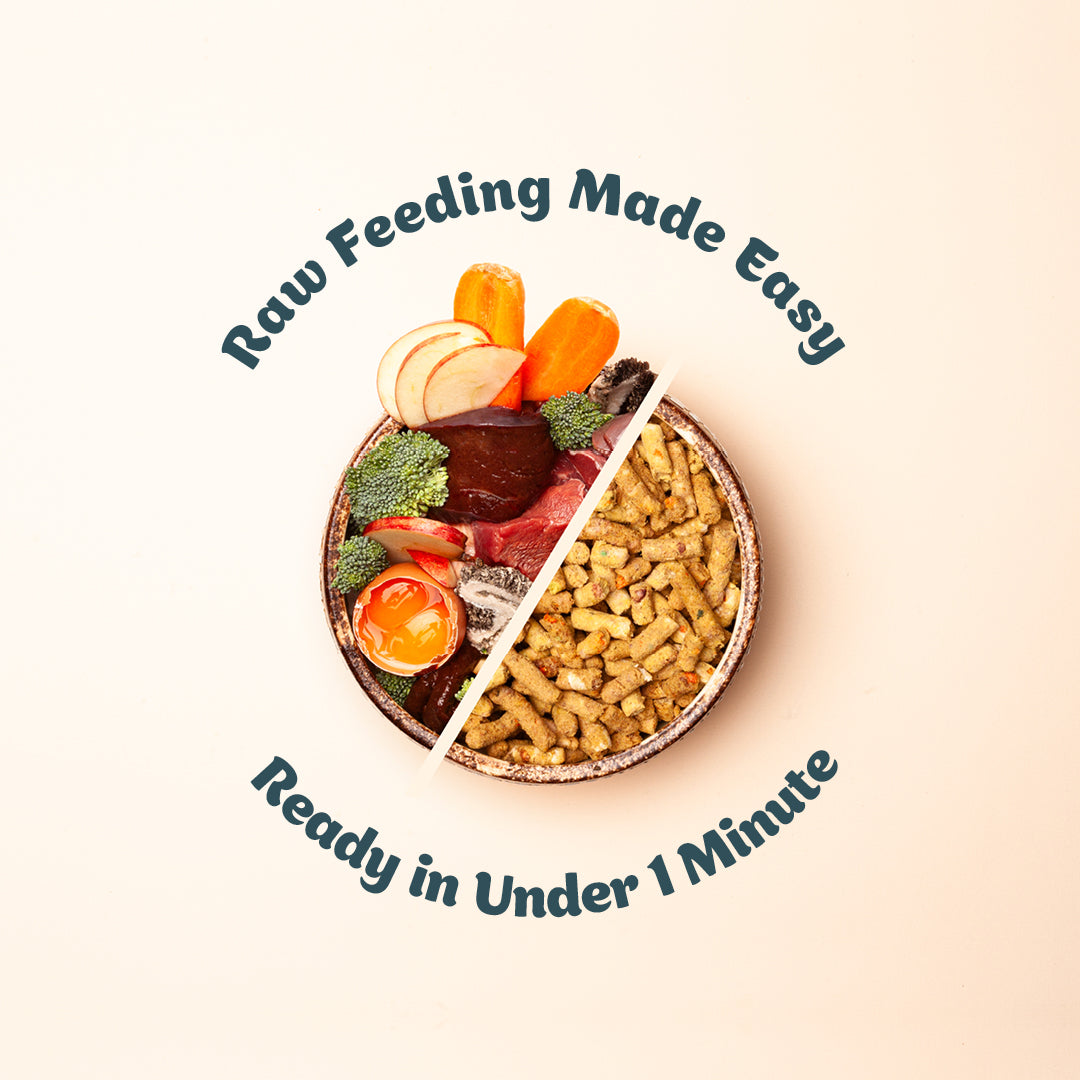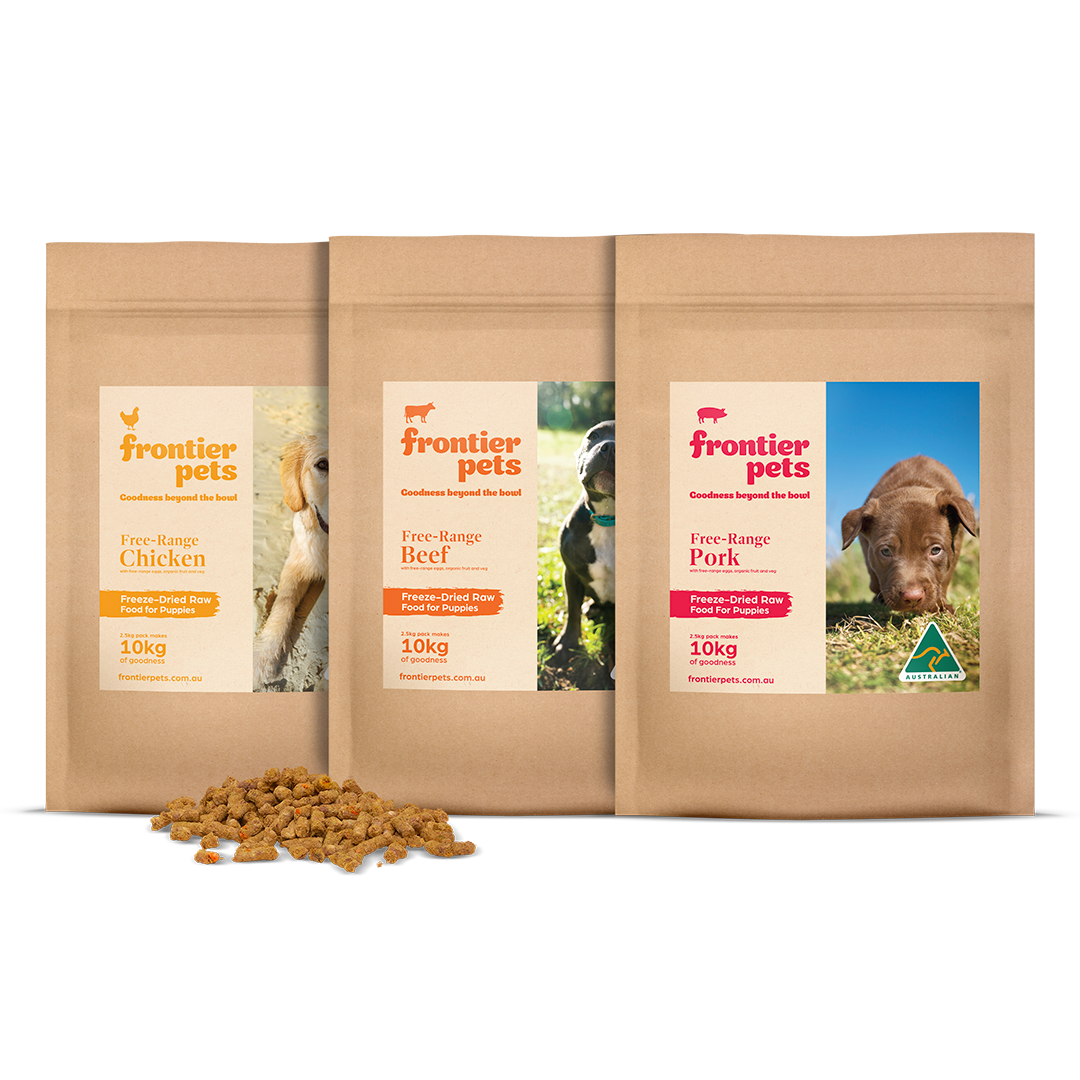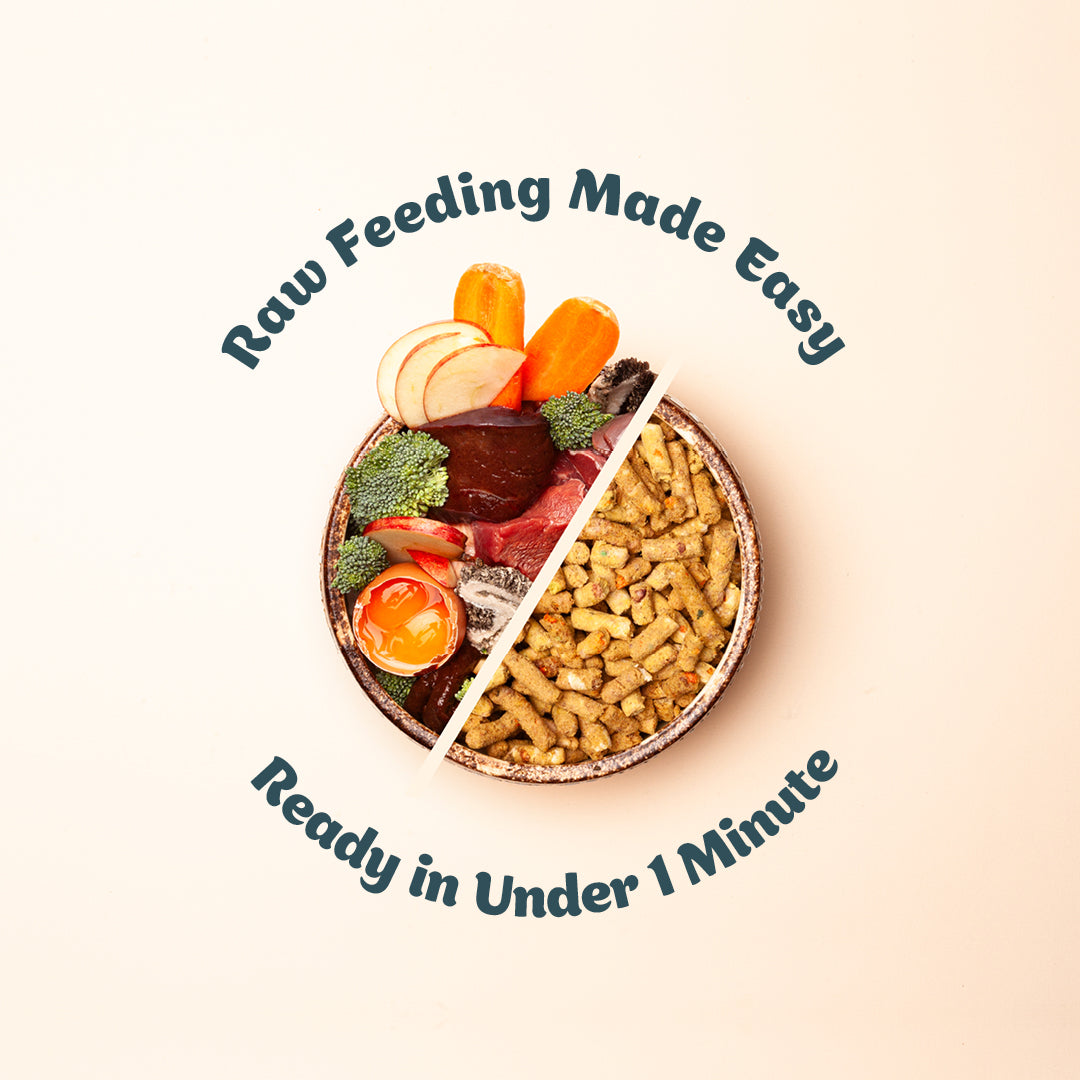Dog Meals
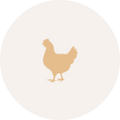
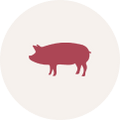
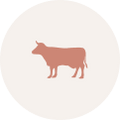


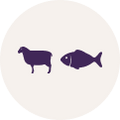




















Frequently Asked Questions
Pets need a balanced diet that includes proteins, fats, carbohydrates, vitamins, minerals, and water. Proteins support muscle development and repair, fats provide energy and healthy skin, carbohydrates are a secondary energy source, vitamins and minerals aid various bodily functions, and water is crucial for hydration. Always check that the food meets AAFCO or NRC guidelines to ensure it provides complete and balanced nutrition.
Since our freeze-dried food offers a different nutrient profile than kibble or cooked food, using our calculator will provide the most accurate serving size for your pet's health and well-being.
Look for:
• Ingredients: Real meat or fish should be the primary ingredient.
• Guaranteed Analysis: Ensures the correct balance of proteins, fats, and other nutrients.
• AAFCO/NRC Compliance: Indicates that the food meets nutritional standards.
• Source of Ingredients: Prefer ethically sourced and sustainably produced ingredients.
Changing your pet's diet should be done gradually to avoid digestive upset, especially when switching between different types of food, such as kibble to raw or raw back to kibble. It's important to monitor your pet closely during the transition and consult your vet if you notice any signs of allergies, health issues, or if your pet seems bored with their current food.
For a smooth change, introduce the new food slowly over 7-10 days, mixing it with the current food and gradually increasing the proportion of the new food. If you're switching between similar types of food, like one flavour of freeze-dried food to another, the transition can be done more quickly. Adding a variety of flavours over time can also help keep your pet's meals exciting and nutritious.
While homemade meals can be nutritious and tailored to your pet's preferences, it's crucial to ensure they are well-balanced and meet all of your pet's dietary requirements. Simply combining ingredients isn't enough, as pets need precise amounts of proteins, fats, carbohydrates, vitamins, and minerals to thrive. Without proper planning, homemade meals can lead to nutritional deficiencies or imbalances that may affect your pet's health in the long term.
For example, you’ll need to calculate the percentage of each nutrient in the meal to ensure it aligns with your pet’s specific needs based on their age, breed, size, and activity level. Essential nutrients like calcium and phosphorus must be in the correct ratio to support bone health, while the right levels of omega fatty acids promote a healthy coat and skin.
Consulting with a veterinarian or a certified pet nutritionist is vital. They can guide you on portion sizes, ingredient selection, and supplements that may be necessary to fill nutritional gaps. Additionally, periodic check-ups and monitoring your pet’s weight, coat condition, and energy levels are essential to confirm the diet is supporting their overall health. By carefully planning and balancing homemade meals, you can provide safe, nutrient-rich food tailored to your pet's unique needs.
Fillers, like corn or soy, are often used to reduce costs but have minimal nutritional value. While not inherently harmful, high filler content can indicate lower quality. Look for foods prioritising whole, nutrient-dense ingredients over fillers.
Raw Food Is Dangerous: Many believe raw food is unsafe, but when handled and prepared correctly, freeze-dried raw diets are not only safe but also highly nutritious. They offer pets a diet closer to what they would naturally eat, supporting their overall health and well-being.
All Human Foods Are Safe for Pets: It’s a common myth that pets can eat all human foods. However, certain foods, like chocolate, grapes, onions, and artificial sweeteners, are toxic to cats and dogs and should always be avoided.
Pets Can Self-Regulate Their Food Intake: Some owners believe pets will stop eating when they’re full, but many pets, especially dogs, can overeat if given unrestricted access to food. This can lead to obesity and other health problems. Controlled portions are essential to maintain a healthy weight and lifestyle.
Heat in traditional kibble cooking destroys many nutrients. Freeze-drying like what we do at Frontier Pets preserves nutrients by removing moisture without cooking, maintaining the food's natural goodness and nutritional value.

